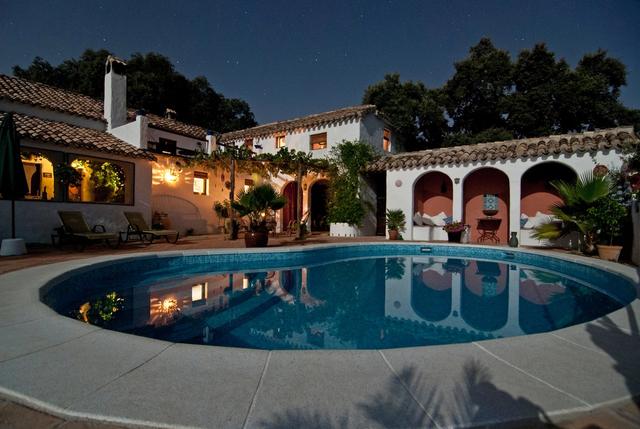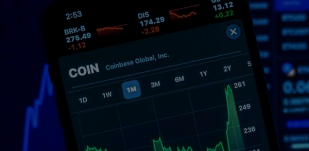A Guide to Buying Property Abroad
If you have some disposable income, an appetite for adventure and love holidaying abroad, now could be the time to purchase an overseas home. Before embarking on this exciting journey, you’ll want to be as informed as possible, so keep reading to discover how to invest in overseas property and avoid any potential pitfalls.
Reasons for buying investment property abroad

A home away from home
One of the biggest perks of investing in property abroad is having year-round access to your own slice of paradise, whether in the form of a holiday home, retirement destination, as a source of rental income, or combination of all three. You’ll have endless opportunities to immerse yourself in the culture, become part of the community and even pick up the local language.
Investment opportunities
If you’re asking yourself “Is buying a property abroad a good investment?”, think of it this way. You wouldn’t want to put all of your money in one bank account, so it makes sense to expand your assets beyond the UK. Speak to a property expert who can share holiday homes abroad to buy in established markets and emerging areas. You’ll want a property that’s in a desirable location, with good transport links and easy access to local amenities.
Financial rewards
Planning on buying a property abroad to rent out? You have a fantastic opportunity to make passive income. Rental income or rental yield refers to your expected earnings over a year when you let your property out to tenants. You can either save this money or put it back into the property to pay off the mortgage.
Taking Spain as an example, second home owners flock to expat areas such as the Costa Brava, where the average rental yield is 4.8%. Head further inland where property is cheaper and you’ll find higher yields like 6.5% in Figueres.
The second type of passive income you can earn is capital growth, which is the increase in value in your rental property over time. You can calculate a property’s capital growth by finding the difference in its current market value and initial purchase price.
How to find an overseas property
Local estate agents
On holiday in the region where you’re looking to buy a property? It would be a good idea to pay a visit to a local estate agent who will be a fountain of knowledge on how the area’s property market has changed in recent years. If you’re in any doubt of who to speak to, check out the Association of International Property Professionals. Remember – estate agents are always acting in the best interest of the seller, so do your own research too.
Developers

Whether you’re looking for a newly built home or buying a house off-plan (one that’s yet to be finished), you’ll want to do your due diligence on the property developer. Ask them for:
- Copies of relevant paperwork – e.g. architects’ plans, engineers’ appraisals, survey reports and confirmation of the land purchase.
- Examples of previously successfully completed developments – or even better, speak to the residents of the properties, as they have been through the process you’re embarking on.
- Information on the local infrastructure – e.g. the local energy supply, water and sewage, telephone and transport links (especially if your property is in a remote or rural area).
Online property portals
Websites you’d typically use to buy a property in the UK, such as Rightmove, Zoopla and OnTheMarket, also have a strong portfolio of holiday homes abroad to buy. Many include the estate agent’s phone number and email address, so you can contact them directly.
Where to get a mortgage
When buying a property overseas, you can either raise funds outright by remortgaging your UK home, or arrange an overseas mortgage in one of two ways:
1. Your local bank
One of the main advantages of arranging an overseas mortgage through your local bank is the ease of doing things in your own language. Some UK banks offer international mortgage services, but this tends to only be in countries where they have offices. This will be fairly straightforward in countries such as France or Spain, but can become harder as you go further afield.
2. Specialist overseas mortgage brokers
If you’d prefer a more in-depth knowledge of the local laws and mortgage market, you can recruit a specialist overseas mortgage broker. They’ll pre-qualify you for the mortgage, so you know you can get one in the first place, before helping you open an account with an English-friendly bank for your deposit and mortgage payments. As with all financial decision-making, proceed with caution. Overseas mortgage brokers aren’t covered by the Financial Conduct Authority, so it’s unlikely you’d receive any compensation if you were given poor advice.
Get clued up about buying overseas with a mortgage and how Clear Currency can help in our guide.
Costs of buying a property abroad
Like with house hunting in the UK, there are a number of additional costs to factor into your overseas property purchase.
Mortgage deposit
Deposits for overseas mortgages tend to be higher than UK properties. For example, you’re likely to pay 30-40% of the property price as a deposit in Spain. Since deposits in some countries are non-refundable, negotiate an initial contract and only send money to a lawyer or bonded estate agent.
Tax
Income Tax – If you buy a second property but remain a UK resident, you’ll have to pay tax on your world income, no matter where you earn it.
Capital Gains Tax – This is paid when a UK resident sells their overseas property and makes a profit. Capital gains tax ranges from 18% to 28% of any gains made on the sale.
Stamp Duty
Stamp Duty is a tax levied on a first home purchased for over £125,000 and a second home purchased for over £40,000. It’s calculated proportionally and ranges from 0% to 15% of the property’s price. Even if your additional property is abroad, and you only own it temporarily, you’ll still be liable for at least 3% stamp duty. Calculate your stamp duty with ease using the HMRC calculator.
Foreign exchange rates
The ever-fluctuating nature of the foreign exchange market means that the value of each currency is constantly changing in relation to all of the others. No one can predict when the currency will go up or down, but factors such as major political upheaval, economic activity and climate change all have a role to play. When you’re making regular foreign transfers, such as for your monthly mortgage payments or utility bills, you'll want to maximise your sterling’s value so that you can keep more of your money.
Other costs to expect include local taxes, utilities, insurance and maintenance, management fees and licences (some countries require these before you can rent your property out).
Changes to buying a property overseas post-Brexit
While Brexit has had some impact on purchasing property overseas, UK residents still have the right to buy a property in the EU and the costs of buying aren’t impacted by your nationality. Here are some of the changes to buying a holiday home abroad since Brexit:
The amount of time you can spend abroad – British citizens can spend no more than 90 days at a time in Europe within a 180-day period (although there are some exceptions).
Adjustment in tax status for British citizens – As an example, EU residents in Spain are charged rental income tax at a rate of 19%. Brexit means that UK residents pay the same rate of tax as non EU citizens, which is currently 24%. Before Brexit, you were able to reduce the amount chargeable to tax by deducting allowable expenses of the rental.
Agreements on healthcare – Now, many expats have to apply for residency to access state-funded healthcare. Alternatively, you’ll need to have a Global Health Insurance Card (GHIC) or arrange international healthcare insurance.
Buying a property abroad: the key takeaways
Ensure you have a clear plan of action for your overseas property purchase.
- As well as speaking to estate agents and property developers, do your own research on potential developments, properties and areas to live.
- Consider how you can make a safe long-term investment and whether you plan on renting out your property.
- Spend time finding out about the laws and tax surrounding property ownership in your chosen country.
- Speak to Clear Currency’s currency specialists who can help you manage your regular exchanges.
Plan how much time you’ll spend in your property. Remember, Brexit means that you can spend no more than 90 days in an EU country within a 180-day period.
Manage your payments online 24/7
Use Clear Currency to move money from A to B, worry free
At Clear Currency, we understand the stress that can be involved in making international payments towards your dream property. As part of our friendly and personal service, you’ll get:
- The most competitive exchange rate on the market.
- Long-term planning to minimise costs.
- Guidance and support every step of the way backed by partnerships with industry bodies like the Alliance of International Property Owners.
- Peace of mind from currency risk.
Get started by taking a couple of minutes to sign up for a free account and one of our currency specialists will be in touch. If you’re not quite ready to open an account but would like to ask some questions, call us on +44 (0)20 7151 4832 or email hello@clearcurrency.co.uk.
Related Articles
How to Mitigate Foreign Exchange Risk
Currency risk can have a significant effect on the efficiency and profitability of any international business. Each exchange rate movement affects how much you receive from sales and what you pay to suppliers.
Read more
Moving to Dubai from the UK: Checklist
You’re ready for a new life overseas and have decided you’re moving to Dubai. Now it’s time to consider the various costs involved, from your visa and accommodation, to health insurance, shipping your belongings and bringing your beloved pets along too.
Read more
Currency Outlook Quarter 1 2023
Clear Currency looks back at the performance of the US dollar, euro and sterling in Q4 2022, and assesses what might be in store for Q1 2023.
Read more


